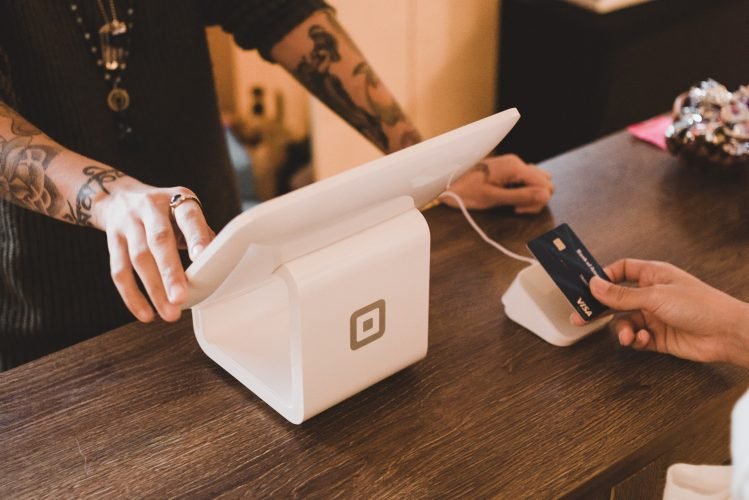How Payment Cards Improve Business Payments
Does your business accept payment cards? Surveys show that around 62% of the American population owns either a debit or a credit card. So if you don’t have a payment processing system yet, you’re missing out on a lot of potential sales.
The only problem here is that applying for a payment processor can be quite pricey. Yes, well-established businesses can easily get their own point-of-sale (POS) machine and card reader any time they want. However, the same can’t be said for smaller businesses.
Apart from having to shoulder extra processing fees and charges, commercial payment processors have certain requirements that need to be met. With that said, SMBs with poor credit standing and low-volume orders might not qualify for a merchant account, much less a payment processing system.

Fortunately, it’s not impossible to work around this issue. In fact, there are plenty of private payment processors that specialize in working with small or high-risk businesses. You just need to know where to look for them.
The only question is if it’s worth all the trouble. Should SMBs go out of their way to apply for a merchant account, work with a payment processor, and recalculate finances to make way for processing fees? The answer varies on a case-by-case basis, but oftentimes, yes!
Some of the reasons why your business should start accepting payment cards are the following:
1. Improves Brand Credibility
Having a payment processing system is a great way to boost brand credibility—whether you run a brick-and-mortar or online store.
On the part of the consumers, seeing that a business can accept a wide range of payment cards helps build authority and reputability. It makes the brand seem more reputable. After all, only registered, licensed shops handle card transactions.
And on the part of other payment processors and merchant account providers, having an existing POS machine and payment processing system indicates tenure. This might make your business a more suitable client. You can use this as leeway to work with processors that provide competitively low and negotiable rates.
2. Secure Mode of Payment on High-Ticket Goods
A common misconception about accepting credit card payments is that they’re risky. As with any other mode of payment, they do carry some risks. However, these payments are backed by multiple institutions—acquiring banks, issuing banks, card networks—that are more than ready to conduct investigations if there’s ever a transaction issue.
Also, disputing fraudulent chargebacks are a pain, but receiving and accepting bounced checks (non-funded accounts) is a much more serious, time-consuming, and expensive issue to deal with. That’s why it’s highly recommended for brands that operate in high-ticket sales to have a payment processing system.
Although, be careful with the payment processor you choose. The fees per transaction are often a percentage of the total amount you need to process, so a high-value order will have an equally high processing fee. Go with payment processors that prioritize high-ticket sales clients and charge fixed rates.
Note: If you target the wealthy, getting a payment processing system might be a good investment. In fact, a study by Total System Services, Inc. reveals that individuals with a six-digit income preferred credit cards over debit cards.
3. Increased Target Market Size
You’ll be able to drastically widen your target market if your business accepts payment cards. In the same study by Total System Services, Inc. mentioned above, the researchers conducted a survey on 1,222 respondents to determine what their preferred mode of payment is. Results show that only a mere 14% favor cash. The other 86% would rather use other types of payment cards.
Also, make sure to advertise your new POS machine. Post announcements on social media, hang a small sign in front of your store that says you accept payment cards and regularly give out discounts/promos to card users.
4. Adapting to Market Demands and Competition
When it comes to market demand, there’s no denying that the modern consumer prefers card transactions. A WePay survey even revealed that more than 58% of small businesses in America regularly get asked by their customers if they accept payment cards or not.
As a result, businesses in the country are quickly adapting as well. The majority of modern small to medium-sized businesses are now working toward being able to process digital wallets and mobile payments. If you don’t even accept credit/debit cards yet, you’ll definitely get left behind.
5. Global Payments Processing
Do you have an e-commerce store and want to expand globally? Get a payment processing system right now! Studies show that there are more than a billion individual credit cards globally, and if you want to tap that market, you need to be able to process payment cards as well.
Your goal would be to find a payment processor that accepts global payments. Preferably, go with an option that has competitively priced cross-border and conversion fees. Remember, you’re going to handle global transactions regularly.
One issue most budding e-commerce stores face is finding a commercial payment processor that’s willing to work with them. Sadly, e-commerce stores are considered high-risk clients.
A good workaround here is to look for high-risk processors that primarily work with online store owners. If possible, choose one that specializes in your preferred industry as well.
But don’t forego the proper paperwork. Even high-risk payment processors still need some kind of proof that you won’t be in a financial loss one year after getting a merchant account.
6. Faster Checkouts
Credit and debit card transactions are significantly quicker than cash transactions. It takes less time for the customer to take out a card, the cashier at the checkout counter won’t have to press as many buttons, and there’s never a need to count change.
Large businesses that deal with high-volume orders regularly would benefit greatly from this. You’ll be able to take on a lot more orders if you can cut down the time customers spend falling in line and paying at the checkout.
Note: High-volume, low-ticket sales businesses should stay away from variable pricing rates. Stick with payment processors that charge a fixed percentage. Even just a $0.15 fee on low-cost, fast-moving goods priced at $1 or $2 is a significant loss.
7. Stimulate Impulse Buys
Studies show that the main driving factor when it comes to impulsive purchases among consumers is the price. People are more likely to buy something “affordable” on impulse. Now, the term affordable is very subjective and depends on multiple elements such as purchasing power.
A consumer’s purchasing power is defined by what goods and services they can pay for at specific periods. This capacity is variable, and it may increase if one has a credit card with them. After all, cash is very limiting.
The idea of making an impulsive purchase using cash is not unheard of, but there are many situations where a prospect is willing to buy but might not have enough cash with them.
And even if there were a nearby ATM, the time it takes to walk to the machine, make a withdrawal, and return to the shop is too long. The customer might feel like the buy is not worth the hassle. You need to make the purchase as easy for them as possible.
So if you sell low-ticket goods and primarily rely on impulsive purchases for sales, we strongly suggest getting a payment processing system.
Factors to Consider When Applying for a Payment Processing System
Processing Volume
How the rates and fees affect your profits heavily depends on your processing volume. For example, interchange-plus pricing might be fine for big businesses with high-volume orders, but for startups that have low-volume orders and sell low-ticket goods, the fixed additional fees on top of the processing rates can be quite pricey.
Industry of Operation
Commercial payment processors tend to avoid businesses that operate in high-risk industries. What constitutes a high-risk industry varies on a case-by-case basis, but generally, these include businesses involved with the following:
- CBD oil
- Online gaming
- Gambling
- Adult films
- Money transfer
- Forex trading
- Tobacco products
- E-cigarettes/Vape products
Business Tenure
Note that tenure would make your business a better candidate for merchant accounts, payment processing systems, and POS machines.
Existing Merchant Account
The funds cleared by your payment processor would have to pass through a merchant account before they can be transferred to a personal bank account.
Additional Resources
The number of debit and credit cards in the U.S.
Statistics show that more than 62% of the general U.S. population own either a debit or credit card—or both.
Usage of mobile banking apps increases
A study shows that around 63% of the general U.S. population have used a mobile banking app for payment transfers or purchases at least once.
Final Thoughts
Overall, having a payment processing system will allow you to scale your business, boost brand credibility, expand the target market, and generally process more orders. Both e-commerce and brick-and-mortar shops should have one.
Also, don’t rush choosing a payment processor. There are dozens of options on the market, and there’s really no need to limit yourself to the first one or two brands that pop up on Google.
Remember: you need a processor that caters to your business’ specific needs. They must be able to process your daily volume of orders, have cost-efficient rates, and most importantly, offer features/benefits you would greatly benefit from.
Do you think modern businesses should immediately work toward getting a payment processing system? Share your thoughts with us in the comments section below!



